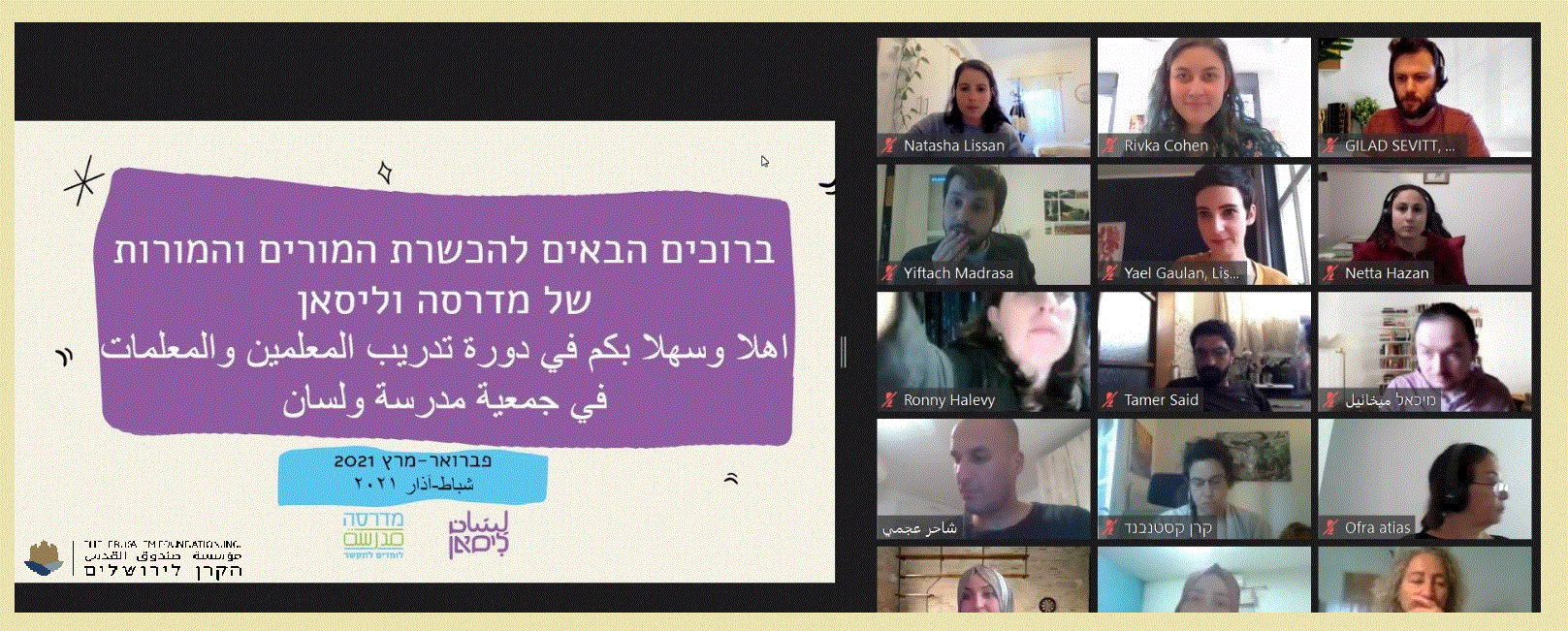Past Projects
Past Lissan projects, including teacher training for Hebrew and Arabic teachers and Arabic courses for MDA and United Hatzala first responders

Teacher Training for Hebrew and Arabic Teachers in Jerusalem
Over recent years, many frameworks for Hebrew or Arabic studies have popped up around Jerusalem, showing the importance of both languages in the shared public spaces in the city. In order to advance and strengthen quality language education of both languages Lissan, in partnership with Madrasa, launched shared Hebrew-Arabic teacher training which offers relevant and practical tools for teaching both languages in the bilingual

city spaces. This training served as a complimentary and enriching platform for teachers in the field and included a series of meetings on a variety of relevant topics for language teachers in Jerusalem, including: approaches to language education, the cultural and political context of language education in a bilingual space, grammar background, and more. This project also aims to connect and create a multicultural and multilingual community of language educators in Jerusalem.
This project was created in collaboration with Madrasa with the support of the Jerusalem Foundation and in partnership with Tolerance Coalition.
Medabrim Aravit - Arabic for Medical Personnel
"Medabrim Aravit - Arabic for Medical Personnel,” a project run by Lissan between 2016-2019, was a project designed to provide Arabic language skills to medical personnel from West Jerusalem. The program provided participants with basic conversational Arabic and useful medical vocabulary, emphasizing practical spoken Arabic skills for communication with patients.
Through this project, Lissan worked to reduce the language barrier that makes it difficult for medical personnel to communicate with their

Arabic-speaking patients. The goal of the project was to enhance the ability of medical personnel to provide quality medical care to East Jerusalem residents.
Lissan created this project in response to the difficulties that Hebrew-speaking paramedics encounter when providing medical assistance to the residents of East Jerusalem, as most volunteer paramedics do not speak Arabic. Reducing the linguistic gap between patient and medical provider makes it easier to provide life-saving primary care and increases the patient's ability to be an active partner in the medical process.
“Medabrim Aravit - Arabic for Medical Personnel” was a collaboration with Magen David Adom and United Hatzalah.
